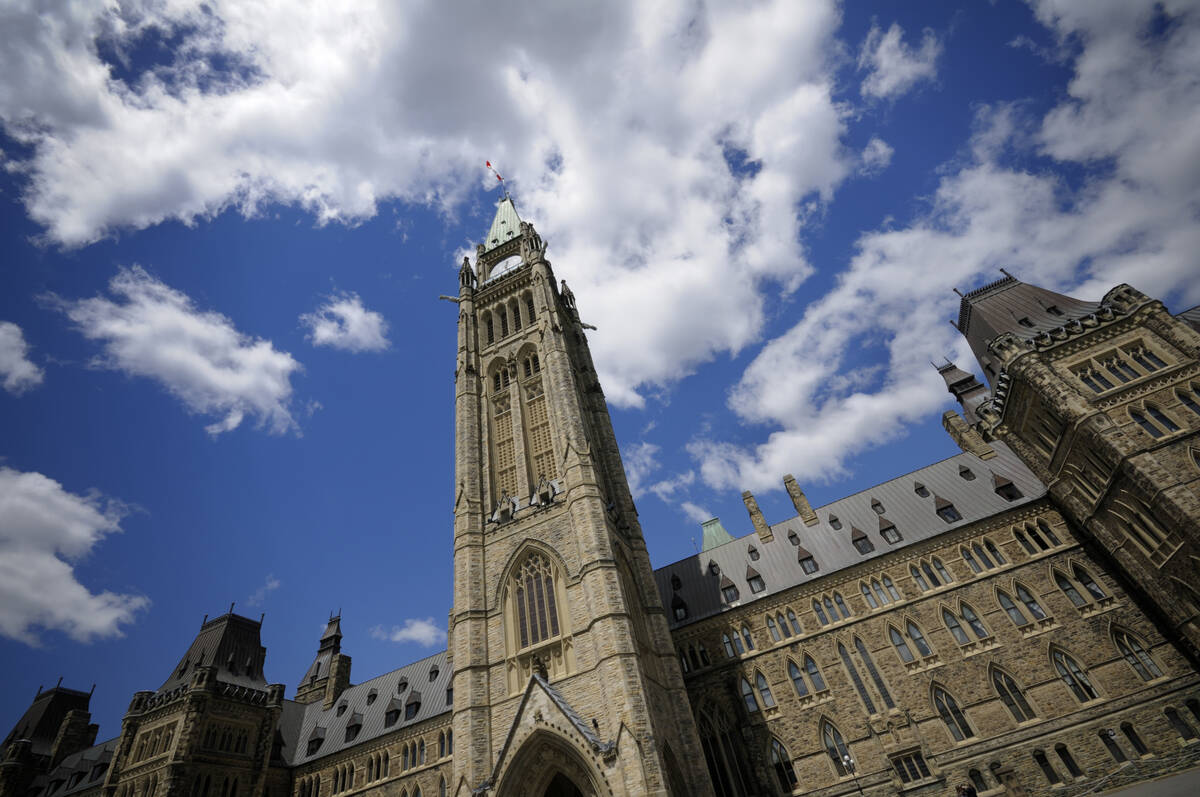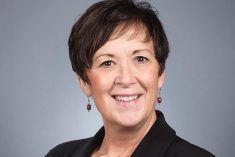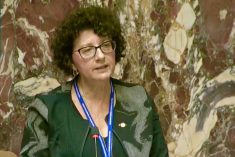An agricultural debate ahead of the federal election gave representatives from political parties an opportunity to pitch their ideas to producers, resulting in debate over how best to support farmers.
Thursday evening’s debate, hosted by the Canadian Federation of Agriculture, had plenty of discussion about climate change and how best to support producers in a changing environment.
Liberal candidate and Canada’s incumbent agriculture minister, Marie-Claude Bibeau, leaned on the small gains her government has made in AgriStability during the first round of questions, in which each partyt’s representative to consider how they would approach the next federal/provincial agricultural policy framework.
Read Also

Budget 2025 includes trade focus, boost for agriculture risk management
The 2025 budget includes several investments relevant to the agriculture sector, including new trade corridors and financial supports for farmers
Negotiations for a new framework will be a key priority for the next government’s agriculture minister, as the current agreement expires in 2023.
Under Bibeau’s leadership, provinces agreed with Ottawa to remove the reference margin limit from AgriStability, but prospects for further short-term changes remain dim as provincial governments in Western Canada continue to consider other program options.
“We are waiting on the conservative provincial governments to make it happen,” Bibeau said early in the debate, adding she wants to introduce “climate risk” into business risk management (BRM) programming to “meet the new reality.”
“These programs can be improved and take into consideration climate risk, this is the conversation that has already started with my provincial colleagues and the industry,” she said
Conservative candidate Dave Epp, running for re-election in Ontario’s Chatham-Kent-Leamington riding, countered Bibeau by arguing the current Liberal approach to BRM programming is too much “Ottawa knows best” and not enough of a partnership with the industry.
Alistair MacGregor, a long-time member of Parliament’s agricultural committee and the incumbent in British Columbia’s Cowichan-Malahat-Langford riding, repeated his oft-used call for programming built around resiliency.
“We know that this next century, climate change is going to be a huge factor,” he said. “The next agricultural policy framework, in discussion with the provinces, is really going to have to center on how we manage the risk from climate change.”
Bibeau jumped on an opportunity to point out the last Conservative government reduced BRM funding before challenging Epp to say how much a Conservative government would invest if elected.
Epp responded by saying the provinces have been the ones to lead throughout the ongoing drought and other challenges. He accused Bibeau of dropping her AgriStability proposal on provinces with no warning “at the 11th hour” and “on the eve of an unnecessary election.”
He said it was the leadership of provinces that resulted in drought-specific relief being brought forward, and accused Bibeau’s government of moving slowly on promised reforms.
“The review of the BRM program promised is still not done,” he said.
Bloc Quebecois representative Yves Perron, again seeking to be the Berthier-Maskinonge MP, called on Bibeau to accept a proposal from Quebec farm groups and move forward with changes to AgriStability solely alongside the provinces willing to do so.
Bibeau responded by again blaming conservative governments, arguing federal programs need to be applied across Canada.
During a debate on threats to the food production sector and how to address them, Epp pointed to labour as a big issue.
Bibeau said her government plans to reduce red tape for good employers and allow for more mobility of employees, while strengthening regional supply chains, to address ongoing challenges.
“The labour shortage is definitely a very big issue right now, it’s what I hear about in the field,” she said.
MacGregor said processing capacity is a challenge, and one where parties have already found common, multipartisan ground to stand on.
“One of the biggest threats, particularly with meat processing, is in many cases we’ve put all of our eggs in one basket,” he said, citing a federal report saying processing plants should be expanded and diversified.
Each candidate offered a commitment to putting in place a Grocery Code of Conduct, something called for during the pandemic as grocers imposed new fees on manufacturers and producers.
Five companies run 80 per cent of grocery sales, and MacGregor said hidden fees from those major retailers is a problem he hears about often.
“We absolutely need to level the playing field,” he said.
Bibeau said the conduct was a “key piece of the puzzle” and said plans for developing a voluntary code are already underway.
Epp contended that wouldn’t do.
“It needs teeth,” he said. “There must be teeth and adherence to the code in order for it to be effective, that’s what I’m hearing from industry.”
When debate turned specifically to the environment, Bibeau again looked to lean on her government’s track record of investing in a green economy. The most recent investment, made during the 2020 budget, received mostly positive reviews from industry.
But Epp argued the industry “will respond better to incentives, than to the stick” in a shot at the Liberals much-critiqued carbon levy.
“The top-down approach doesn’t work, we need further collaboration with our producer groups,” he said.
MacGregor said that where no alternatives exist, producers should be offered exemptions from paying carbon fees, but said, “We have to understand there are opportunities to help farmers transition.”
A brief debate on supply management resulted in each candidate agreeing they support the policy but squabbling over efficiency in payments to producers who lost market share as a result of recently signed trade deals.
There was equal agreement on the need to modernize the Canada Grain Act and introduce reforms to allow for easier intergenerational farm transfers. Each candidate also committed to being more assertive in international trade.
— D.C. Fraser reports for Glacier FarmMedia from Ottawa.















